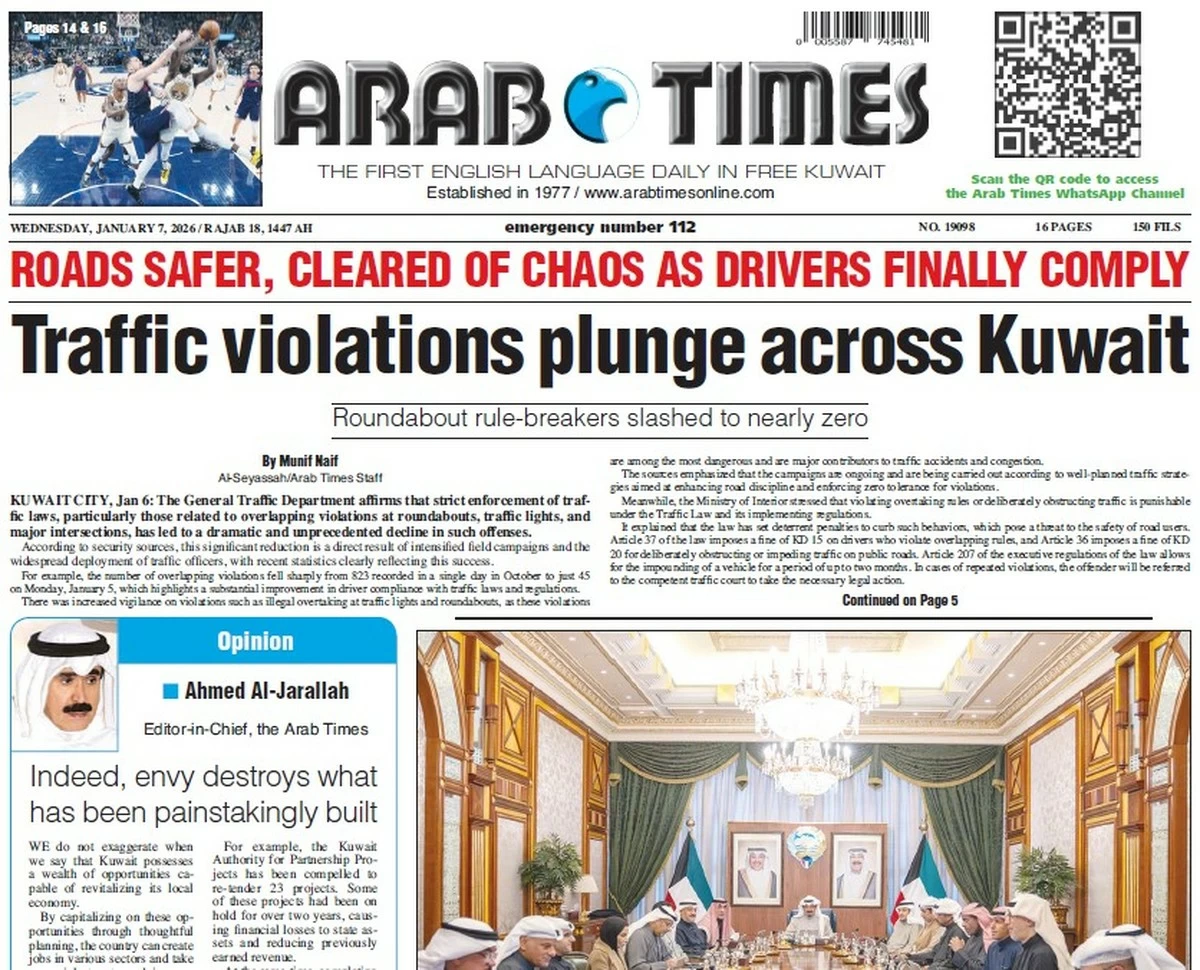08/10/2025
08/10/2025

NEW YORK, Oct 8: Reaffirming its longstanding commitment to human dignity, the State of Kuwait declared before the United Nations that this principle remains the cornerstone of both its domestic and foreign policies, rooted deeply in its Constitution, which enshrines justice, equality, and human freedom as the foundations of governance.
Addressing the UN General Assembly’s Third Committee under the general debate agenda, Wafiqa Al-Mulla, Second Secretary of Kuwait’s Permanent Mission to the UN, laid out Kuwait’s comprehensive and inclusive approach to human rights and development, emphasizing the country’s efforts to empower women and youth, protect children and the elderly, and promote sustainable development.
“Kuwait has paid special attention to vulnerable groups,” Al-Mulla said, “making the empowerment of women and youth, and the care of children and the elderly, a national mission and a development priority — because development can only be truly comprehensive when it includes everyone.”
Al-Mulla highlighted Kuwait’s notable strides in advancing women's rights, stating that women now comprise 58 percent of the national workforce, with 28 percent holding leadership roles. Specialized bodies such as the Women and Business Committee and the National Committee for the Implementation of Security Council Resolution 1325 have been established to further support female participation in both the private and public sectors. The latter committee, headed by the Ministry of Foreign Affairs and including various governmental and civil society representatives, has driven key reforms such as:
- Abolishing discriminatory legal provisions,
- Including women in military and police forces,
- Appointing female judges and prosecutors,
- Expanding women's leadership in diplomacy and the judiciary.
On the issue of sustainable development, Al-Mulla spotlighted efforts to build inclusive, sustainable cities, including the creation of a Women’s Housing Committee to ensure safe housing for divorced, widowed, and single women — a step she described as pioneering in the region’s housing policies.
In child protection, Kuwait has intensified efforts by establishing the Supreme National Committee for Child Protection in collaboration with the Public Prosecution. The launch of the Child Support Line (147) and mechanisms for reporting violence underscore the government’s commitment to child welfare.
Turning to elderly care, Al-Mulla noted the introduction of comprehensive preventive and treatment programs benefiting over 36,000 senior citizens through priority access cards and free medical services. “Kuwait believes that human dignity is indivisible,” she said, “and that aging should be met with care and respect.”
Youth development remains a national focus, with Kuwait ranking 40th globally in the Youth Development Index 2023. The launch of the Kuwait Award for Excellence and Youth Creativity aims to further inspire innovation. Al-Mulla proudly cited the achievements of Kuwaiti youth, including receiving the UNESCO-Emir Jaber Al-Ahmad Al-Jaber Al-Sabah Prize for Digital Empowerment.
Addressing domestic violence, she detailed the establishment of the National Committee for Protection from Domestic Violence in 2021, alongside the creation of specialized shelters for victims and children, and the organization of over 150 training workshops to raise awareness and build institutional capacity.
Among Kuwait’s legislative advancements, Al-Mulla highlighted Law No. 134 of 2025, regulating the use and protection of the Red Crescent and Red Cross emblems. This law reinforces Kuwait’s commitment to international humanitarian obligations and aligns with its broader humanitarian strategy.
She expressed Kuwait’s full support for global initiatives to reinvigorate social development and confirmed the country’s intention to participate actively in the upcoming World Summit for Social Development set for Doha in November.
On human rights, Al-Mulla emphasized Kuwait’s approach as one of credibility and consistency, grounded in dialogue, cooperation, and capacity-building. She firmly rejected the politicization of human rights or their misuse as tools of pressure, warning against selective standards.
In this context, she condemned the continued Israeli occupation and its aggressive policies, calling them a blatant violation of international humanitarian law and relevant UN resolutions. “A just and comprehensive peace,” she stressed, “can only be realized by ending the occupation and allowing the Palestinian people to establish an independent state based on the June 4, 1967 borders, with East Jerusalem as its capital.”
Concluding her statement, Al-Mulla reaffirmed Kuwait’s commitment to its “active and constructive role” in the Third Committee and other international forums, defending humanitarian principles and standing up for the universal right to a life of freedom and dignity.


